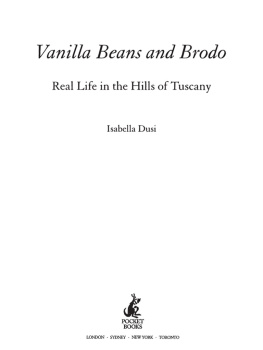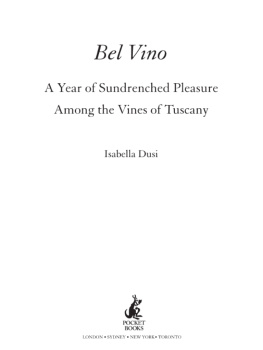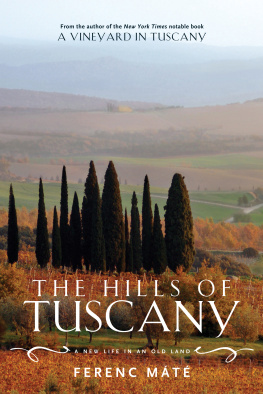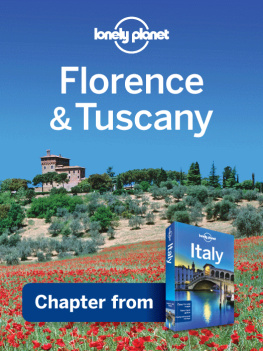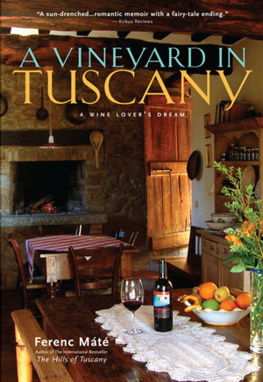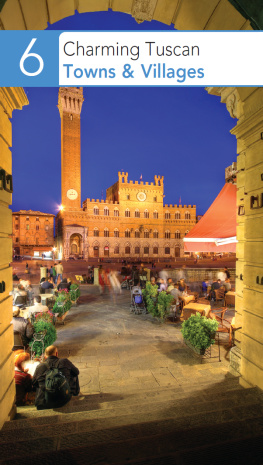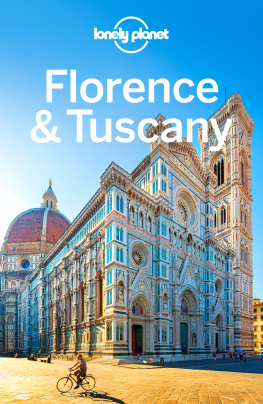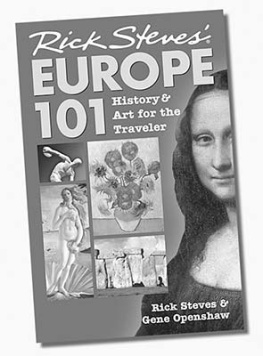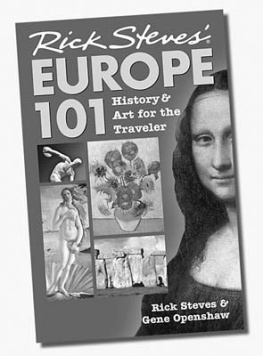
First published in Great Britain by Simon & Schuster UK Ltd, 2001
This edition first published by Pocket, 2002
An imprint of Simon & Schuster UK Ltd
A CBS Company
Copyright Isabella Dusi, 2001
Illustrations copyright Barbara Horne, 2001
This book is copyright under the Berne Convention
No reproduction without permission
and 2000 Simon & Schuster Inc. All rights reserved
Pocket & Design is a registered trademark of Simon & Schuster Inc
The right of Isabella Dusi to be identified as author of this work has been asserted in accordance with sections 77 and 78 of the Copyright, Designs and Patents Act, 1988.
Simon & Schuster UK Ltd
Africa House
6478 Kingsway
London WC2B 6AH
www.simonsays.co.uk
Simon & Schuster Australia
Sydney
A CIP catalogue record for this book is available from the British Library
ISBN 10: 0-7434-0411-4
ISBN 13: 978-0-7434-0411-2
eISBN: 978-1-4711-3481-4
Typeset in Granjon by SX Composing DTP, Rayleigh, Essex
Printed and bound in Great Britain by
Cox & Wyman Ltd, Reading, Berkshire
About the Author
After many years working in Australia in interior design, Isabella Dusi decided to move to Italy with her husband Luigi. Based permanently in Montalcino, they now work in the travel business. This is her first book.
To my daughter, Rebecca
List of Illustrations
Acknowledgements
This is not my story, and it is not a story about me: this is the story of Montalcino.
I am humbled and privileged that friends have shared with me and entrusted to me their memories, their joy and their pain, but I am burdened with the feeling that there is so much I have left out.
I accept responsibility for all of the material, conscious always that occasionally I was faced with slightly differing records, and on occasions I have had to make decisions for the benefit of the reader.
I trust that my friends will understand that I could only write this story from the perspective of a stranger a stranger who is passionate about Montalcino, and one who feels the time is right for its story to be shared.
My sincere thanks to all the citizens of Montalcino. Without you, dear friends, this book could not have been written. I remain deeply in your debt.

Hidden among the perfumed branches, crowned with chestnut trees and vines
Montalcino, beautiful village, reigns on fertile Sienese land
Many pages of history, narrated by each stone
Each page a page of glory, a legend that must be told.
Up here, always higher towards the sun
Montalcinos banner rises
First to be kissed by Madonna Spring.
Sig. Nando Ciacci, 1950
Trans. Isabella Dusi
PREFACE

Arrivederci Iron Lady... Ciao, Signora Isabella!
A number of years ago we discovered Montalcino; a couple of strangers, Australians, Lou and I were seeking a new home. Both of us spring from migrant families. My parents, with 80 to their name, sailed from war-weary Scotland in 1948 taking us three children across the world to an unknown life in a promising country; and Lou, as a child of six, was taken to Australia by his parents from a troubled Italy torn apart with political strife and foreign invaders. We were all post-war immigrants on our way to the land of opportunity across the sea. The early decades of our young lives in different States of Australia unfolded along entirely different paths but, perhaps from the courage of our parents, sprang a spirit of adventure and curiosity about the world beyond Australia.
So, how did this happen? Why am I living in Italy? It sounds simple enough: impulsively selling everything I possessed, I moved to Italy in 1994 with an Italian-born Australian who had just become my new husband. Life, however, is rarely simple. Nor was the tangled road which brought me to Montalcino.
Before my twentieth birthday, soon after I had married my sweetheart, we sailed away from Australia two precocious Aussies en route to discover the world. Armed with enthusiasm and false invincibility, we managed to get shot at in Spain; to be led thankfully alive out of the medina in Marrakesh (where I saw things I cannot yet credit to be true), then blithely travelled through the Atlas Mountains alongside a tribe of dark-bearded herdsmen; spent many nights in a straw and mud hut, sleeping with the goats, in the remote mountains of what was then Yugoslavia... finally, in a midnight dash, we were chased out of Italy by the police!
With the confidence of the young, I naively assumed my life would continue along this same exciting path but, within a few short years my handsome young husband was gone. Barely had we reached the safety of our homeland when a tragic road accident left Rebecca, our six-month-old baby, fatherless, and me with a child to raise and a new life to find. These circumstances influenced the future and, driven by the scary realities of life, I adopted a steely exterior to insulate my inner self from hurt. Possessing little but an unyielding desire to educate Rebecca, I faced an uncertain future. I built a career in interior design, accepting seemingly glamorous commissions which took me up and down the east coast of Australia, so that I was forever on the move. My traumatic circumstances had brought me an insatiable need to search for answers about people and the way they lived their lives in the extravagant dream homes I was creating for them, because I continually wondered why their lives seemed so different, so orderly compared to the turmoil of my own disrupted life. With my vulnerability well camouflaged, I drove myself to Super-businesswoman status by pushing impossible deals, pounding boardroom tables and slamming down phones.
By the time Rebecca gained acceptance into University, I had met Lou who, operating an upholstery workshop, saved me from the wrath of a disbelieving client by delivering eighteen calico-upholstered dining chairs to an Embassy reception ten minutes before the first distinguished Ambassador walked through the doors! Tamil Tigers had hijacked the intended silk. Perhaps I should have resorted to the last line of a designers defence and said the ship had sunk in the Indian Ocean.
By way of reward for Rebeccas diligence at school, and daring, for once, to look beyond that day, I agreed that the three of us should have a holiday in Italy. My daughter, beautiful, dark-haired and tall at eighteen years old, towered above me. Dragging both her and Lou up the highest mountains to gaze across serene valleys, I then insisted we scramble down a rocky goat track to find an isolated shrine firmly pictured in my mind and never forgotten; a sweet Madonna of benign simplicity smiling into eternal silence. Precious memories rose close to the surface and, blinking away tears, I was astonished at the innocence of my youth.
It was Lous first re-encounter with Italy, the country of his birth. He was in his own world of discovery, finding himself surrounded by a people and a culture astonishingly familiar to his life in an Italian/Australian family. For the first time he understood his immigrant parents who, during half a lifetime in Australia, had barely spoken English. Now he was able to see the raw life his father had faced. His first job in Australia had been in the woolsheds, awaiting the arrival of the road trains from the outback sheep stations after the shearing. His daily labour was to scour the fleeces on wooden tables to remove lanolin from them before they went off to the wool stapler to be graded.
Next page
